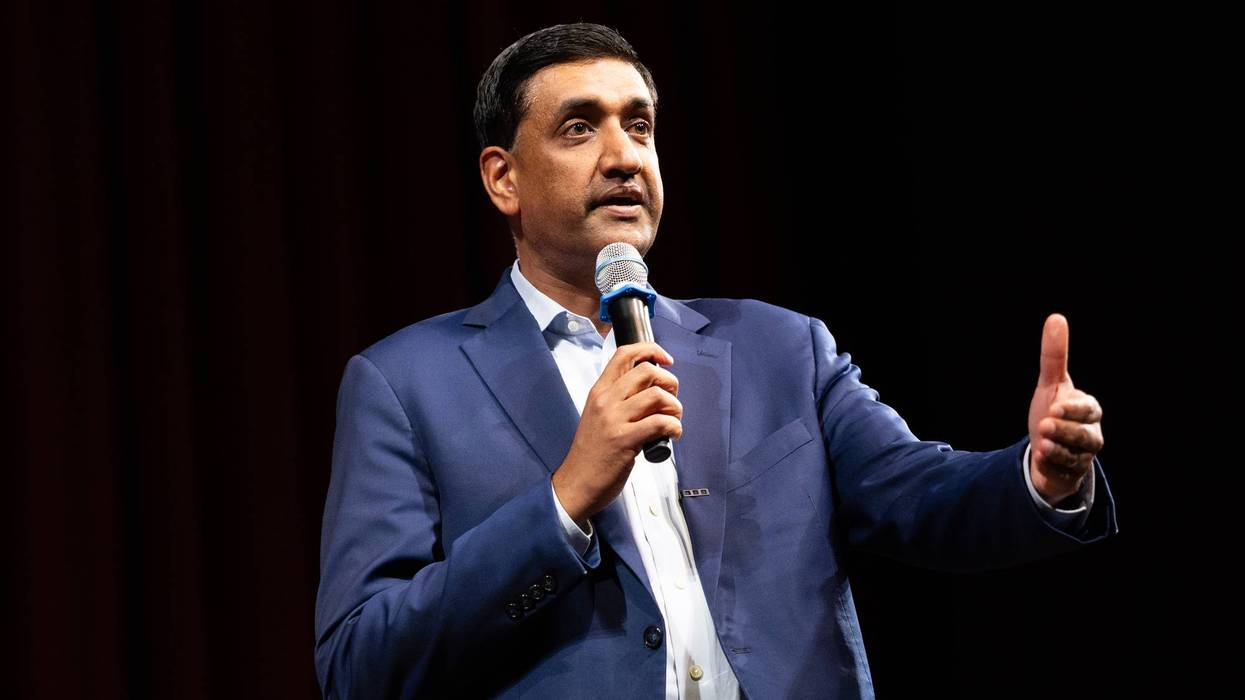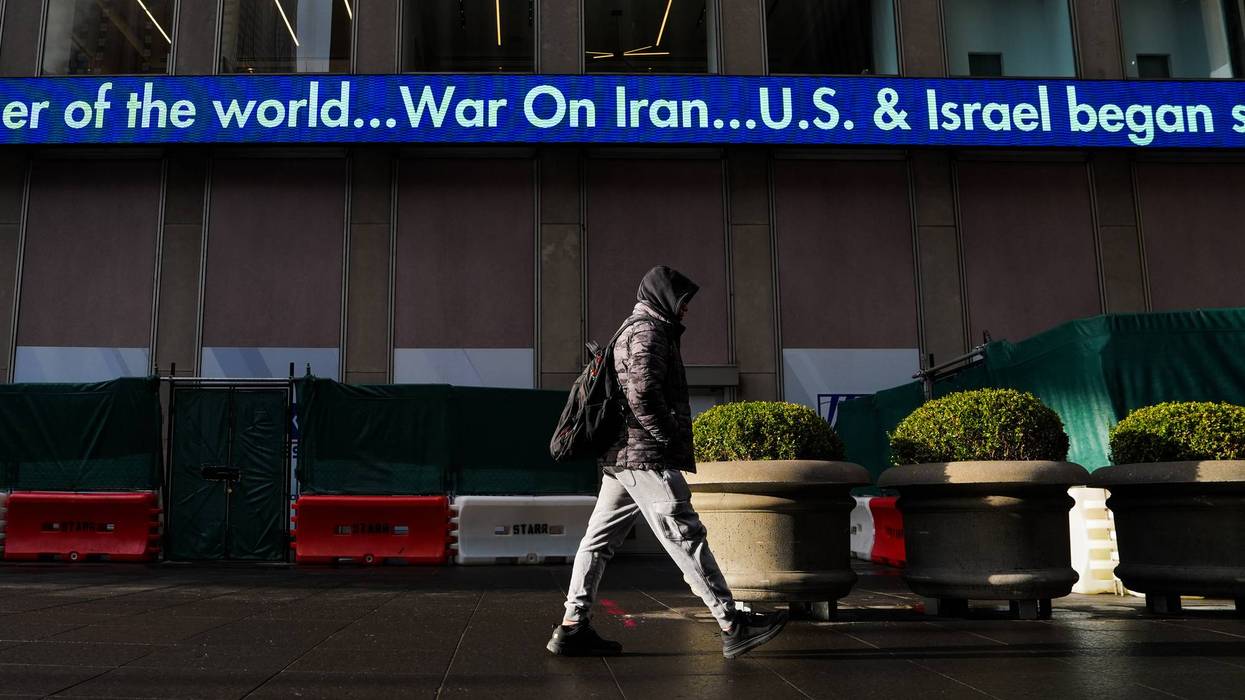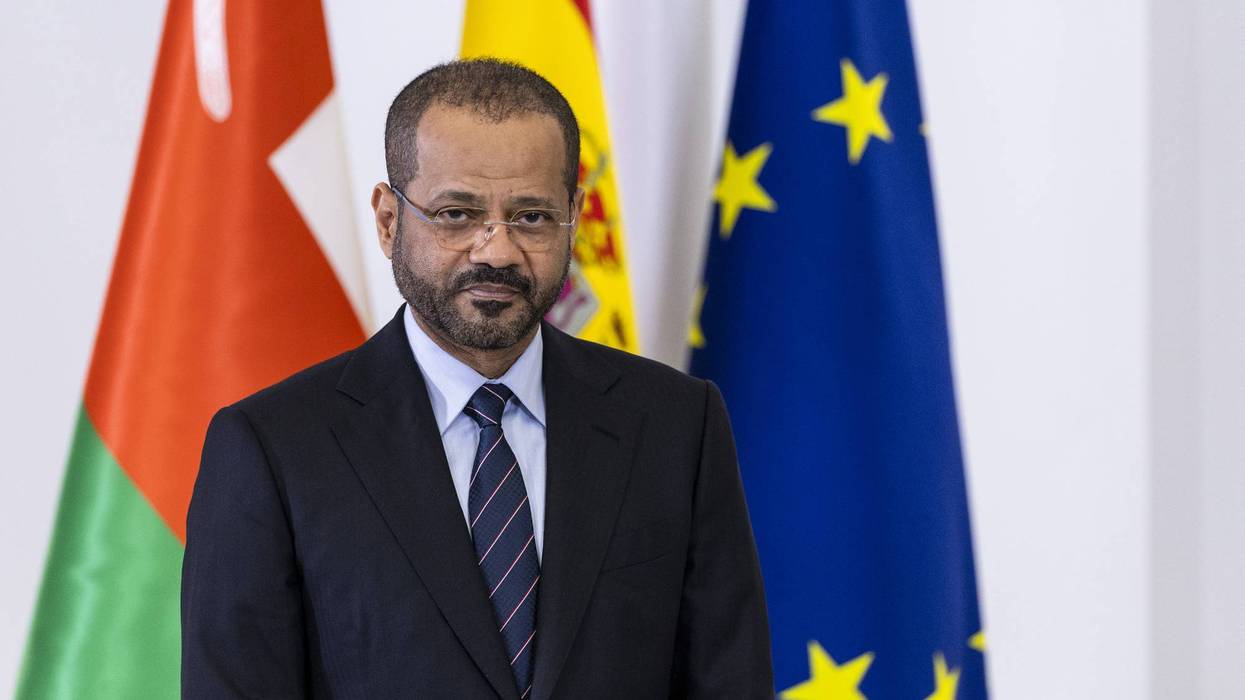April, 17 2019, 12:00am EDT
For Immediate Release
Contact:
Diana Duarte, MADRE, media@madre.org, (917) 740-0684
Kandi White, Indigenous Environmental Network, Kandi@ienearth.org, (701) 214-1389
Global Indigenous Women's Delegation Visits North Dakota to Share Strategies to Oppose Mega Oil and Gas Projects, Impact on Women and Girls
Fort Berthold, ND
A delegation of Indigenous women climate defenders from Colombia, Guatemala, Israel, Kenya, Nepal and Nicaragua arrived today in North Dakota to visit the Fort Berthold Reservation where they will meet with local leaders who are confronting the devastating impact of oil and gas mega-projects on their communities, particularly on Indigenous women and girls.
The delegation, organized by MADRE and the Indigenous Environmental Network, is an opportunity for Indigenous women leaders challenging extractive industries and resource exploitation in their own communities around the world to learn from local leaders working on the Fort Berthold Reservation--home to the Three Affiliated Tribes of the Mandan, Hidatsa, and Arikara nations. Here, they will share stories and discuss strategies for opposing the devastation and displacement wrought by extractive industries worldwide.
"Indigenous Peoples around the world facing off against mining and other harmful mega-projects in their own communities are deeply inspired whenever Indigenous Peoples rise up against these environmental threats," said Lucy Mulenkei, one of the delegates and the Executive Director of the Indigenous Information Network in Kenya. "We know for-profit extractive industries continue to threaten the land and well-being of people in this region--and in our own--with a disproportionate impact on Indigenous Peoples, particularly women and girls."
"Opportunities like this are necessary in the work of Indigenous Women to foster the building of lasting relationships as we help each other face urgent issues in our communities and come together to tackle them at the local to the international level," added Kandi White, Indigenous Environmental Network Native Energy & Climate Campaign Director.
"Indigenous women the world over have been identifying solutions to address the harm that has been wrought by extractive industries and resist the continued devastation of Indigenous livelihoods and lands," says Yifat Susskind, MADRE Executive Director. "We are grateful to be able to bring together a delegation to center and connect the voices and urgently-needed strategies of Indigenous women leaders powering environmental justice movements in the US and around the world. We know their solutions can and must inform relevant policy, including the Green New Deal that the US Congress is currently debating."
The delegation is meeting with Fort Berthold Protectors of Water & Earth Rights (Fort Berthold P.O.W.E.R.), local youth group members of Descendants Alliance, and other local Indigenous leaders and activists.
After visiting North Dakota, the delegation will travel to the United Nations Permanent Forum on Indigenous Issues taking place in New York from April 22-May 3, 2019 where they will share concrete policy recommendations and a joint statement on how to best confront extractive industries and their harmful effects on Indigenous communities around the world.
All international delegates (see below), as well as MADRE and IEN representatives, are available for interviews. Photos available upon request. Delegates include:
Lucy Mulenkei (Kenya). Lucy is the Executive Director of the Indigenous Information Network (IIN) in Kenya. A Maasai from Kenya, she has been working both as a chairperson and coordinator of the African Indigenous Women Organization in the East African Region for the past several years.
Yasso Kanti Bhattachan (Nepal). Yasso belongs to the Thakali Indigenous community. She is a founding member and advisor of the National Indigenous Women's Federation (NIWF), Nepal, and one of the leading Indigenous women activists and scholars of Nepal.
Rose Cunningham (Nicaragua). Rose, a Miskito leader and expert in popular education, international labor law, and the rights of migrants, refugees, and displaced persons, is the founder of the organization, Wangki Tangni. She served as an officer of the Organization of American States for 10 years and has been instrumental in raising awareness about violence against Indigenous Women at the UN.
Ana Ceto Chavez (Guatemala). Ana, an Indigenous leader from the Ixil region of El Quiche, is the coordinator of MUIXIL, an organization that promotes and defends the human rights of Indigenous women and their communities. The first Indigenous woman in her community to receive a law degree, she is a strong advocate of restitution and recognition from the Guatemalan government for the genocide of Indigenous Peoples.
Remedios Uriana (Colombia). Remedios is an Indigenous leader who has worked extensively on behalf of the rights of children and Indigenous women of the Wayuu People. She is currently part of the Gender Group of the Colombian Commission for the Clarification of Truth, Coexistence and Non-Repetition.
Sana Ibn Bari (Israel). Sana is a Bedouin activist and advocate for women's rights. An attorney by training, she is responsible for overseeing the rights of the Naqab-Negev Arab Bedouin in the Arab Minority Rights Unit at the Association for Civil Rights in Israel. Sana has participated in several delegations to the UN, representing the Naqab Arab Bedouin community.
MADRE is an international women's human rights organization that partners with community-based women's groups to advance women's human rights, challenge injustice and create social change in contexts of war, conflict, disaster and their aftermath. MADRE advocates for a world in which all people enjoy individual and collective human rights; natural resources are shared equitably and sustainably; women participate effectively in all aspects of society; and all people have a meaningful say in policies that affect their lives. For more information about MADRE, visit www.madre.org.
LATEST NEWS
Demanding Action From Congress, Khanna Says 'The American People Are Tired of Regime Change Wars'
"We don't want to be at war with a country of 90 million people in the Middle East," said Democratic US Rep. Ro Khanna.
Feb 28, 2026
US Rep. Ro Khanna on Saturday demanded swift action from Congress to stop the Trump administration's unauthorized military assault on Iran, saying in a video posted to social media that "the American people are tired of regime change wars that cost us billions of dollars and risk our lives."
"We don't want to be at war with a country of 90 million people in the Middle East," said Khanna (D-Calif.), calling on Congress to reconvene for a vote on Monday.
"Every member of Congress should go on record today on how they will vote on Thomas Massie and my War Powers resolution," Khanna added, referring to the Kentucky Republican who is co-leading the measure.
If passed, the resolution would require the president "to terminate the use of United States Armed Forces from hostilities against the Islamic Republic of Iran or any part of its government or military, unless explicitly authorized by a declaration of war or specific authorization for use of military force against Iran."
The White House reportedly only notified some members of the House and Senate Armed Services Committees after the US-Israeli military assault on Iran began. According to Reuters, an Israeli defense official said that "the operation had been planned for months in coordination with Washington, and that the launch date was decided weeks ago."
Watch Khanna's remarks:
Trump has launched an illegal regime change war in Iran with American lives at risk. Congress must convene on Monday to vote on @RepThomasMassie & my WPR to stop this. Every member of Congress should go on record this weekend on how they will vote. pic.twitter.com/tlRi3Vz849
— Ro Khanna (@RoKhanna) February 28, 2026
Days prior to the US-Israeli attack on Iran, the House Democratic leadership announced it would force a vote next week on the Khanna-Massie War Powers resolution following reports that top Democrats were slowwalking the measure behind closed doors.
Senate Democrats also said they planned to vote next week on a War Powers resolution led by Sens. Tim Kaine of Virginia.
In a statement on Saturday, Kaine called the US attacks on Iran "illegal" and said that "every single senator needs to go on the record about this dangerous, unnecessary, and idiotic action."
“Has President Trump learned nothing from decades of US meddling in Iran and forever wars in the Middle East? Is he too mentally incapacitated to realize that we had a diplomatic agreement with Iran that was keeping its nuclear program in check, until he ripped it up during his first term?" Kaine asked. "These strikes are a colossal mistake, and I pray they do not cost our sons and daughters in uniform and at embassies throughout the region their lives. The Senate should immediately return to session and vote on my War Powers resolution."
The chances of a War Powers resolution getting through the Republican-controlled Congress are virtually nonexistent, even though the American public overwhelmingly opposes US military action against Iran. Senate Majority Leader John Thune (R-SD) and House Speaker Mike Johnson (R-La.) both issued statements applauding Trump for the unauthorized Saturday attacks.
Cavan Kharrazian, senior policy adviser to the advocacy group Demand Progress, said that "Trump has no authority to launch another war on his own."
"The Constitution is clear. The need for a War Powers resolution is clear. Congress decides when this country goes to war, not the president," said Kharrazian. "Next week, every member of Congress will have to choose. Side with illegal, endless war, or side with the American people and reject yet another regime change war in the Middle East. Like with Iraq, the choice they make will echo loudly for years to come.”
Keep ReadingShow Less
'The Behavior of Rogue States': Global Revulsion as US and Israel Launch War on Iran
"The attacks on Iran by Israel and the United States are illegal, unprovoked, and unjustifiable," said Jeremy Corbyn, an independent member of the UK Parliament.
Feb 28, 2026
Elected officials, activists, and experts around the world voiced horror and outrage Saturday as US President Donald Trump and Israeli Prime Minister Benjamin Netanyahu jointly launched an illegal war on Iran with the explicit goal of toppling the nation's government, sparking chaos throughout the Middle East.
The wave of bombings, expected to mark the beginning of a wider assault, spurred airspace closures and flight cancellations across the region as countries braced for the fallout. While European leaders offered milquetoast responses to the unlawful military attack and Canadian and Australian officials openly endorsed it, leftist politicians and others unequivocally condemned the US and Israel as the aggressors.
"The attacks on Iran by Israel and the United States are illegal, unprovoked, and unjustifiable," said Jeremy Corbyn, an independent member of the British Parliament and former leader of the UK Labour Party. "Peace and diplomacy was possible. Instead, Israel and the United States chose war."
"This is the behavior of rogue states—and they have jeopardized the safety of humankind around the world with this catastrophic act of aggression," Corbyn added. "Our government must condemn this flagrant breach of international law, and urgently pursue a foreign policy based on justice, sovereignty, and peace."
Progressive International co-founder Yanis Varoufakis, the former finance minister of Greece, echoed Corbyn's criticism of the US and Israel as "rogue states."
"Israel and the USA," he wrote on social media, "have started a war not against Iran but against the whole world. We stand with Iranians, with humanity, against the notion that Israel and the US can bomb anyone their fancy takes them to bomb."
Badr Albusaidi, the foreign minister of Oman and the mediator of recent US-Iran talks, said he was "dismayed" by news of the US-Israel attacks on Iran, which were quickly followed by reports of horrific atrocities. Albusaidi said hours before the bombs started falling on Iran that a diplomatic resolution was within reach.
"Active and serious negotiations have yet again been undermined," Albusaidi lamented on Saturday. "Neither the interests of the United States nor the cause of global peace are well served by this. And I pray for the innocents who will suffer. I urge the United States not to get sucked in further."
Leftist Colombian President Gustavo Petro said he believes "President Donald Trump has made a mistake today" and implored the "helpless United Nations" to "convene immediately" in response to the US-Israel attacks and retaliation by Iran and allied groups in the region.
Iran vowed a "crushing" response to the US-Israeli onslaught, firing drones and missiles at Israel and pledging to hit US military installations in the region.
Al Jazeera reported that "Iran has targeted United States assets across the Gulf Arab states in retaliation for a huge joint attack on Iran by the US and Israel, as the region’s worst fears of being ignited in the flames of a sustained war loom."
"The Iranian government on Saturday confirmed its attacks on several targets, according to the Fars news agency, including Bahrain, Kuwait, Qatar, and the United Arab Emirates, where US airbases are hosted," the outlet noted.
Keep ReadingShow Less
Oman's Foreign Minister Said US-Iran Deal Was 'Within Our Reach.' Then Trump Started Bombing
"The Omani FM decided to go public," suggested one observer, "so that the American people knew that peace was within reach when Trump instead opted for war."
Feb 28, 2026
Hours before President Donald Trump announced his decision to bomb Iran and pursue the overthrow of its government, the foreign minister of Oman appeared, in person, on one of the most prominent US television news programs to declare that a diplomatic breakthrough was possible.
"I can see that the peace deal is within our reach," Badr Albusaidi, the mediator of recent talks between the US and Iran, told "Face the Nation" host Margaret Brennan on Friday. "I'm asking to continue this process because we have already achieved quite a substantial progress in the direction of a deal. And the heart of this deal is very important, and I think we have captured that heart."
Pressed for specifics, Albusaidi said that Iran committed during the talks to renounce the possibility of amassing "nuclear material that will create a bomb"—a pledge that Trump claimed Iran refused to make as part of his justification for Saturday's strikes.
"This is something that is not in the old deal that was negotiated during President Obama's time," Albusaidi said, referring to the 2015 nuclear accord that Trump ditched during his first term in the White House. "This is something completely new. It really makes the enrichment argument less relevant, because now we are talking about zero stockpiling. And that is very, very important, because if you cannot stockpile material that is enriched, then there is no way you can actually create a bomb, whether you enrich or don't enrich. And I think this is really something that has been missed a lot by the media, and I want to clarify that from the standpoint of a mediator."
"There is no accumulation, so there would be zero accumulation, zero stockpiling, and full verification," the Omani foreign minister continued. "Full and comprehensive verification by the [International Atomic Energy Agency]."
In a social media post following the interview, Albusaidi reiterated that a deal "is now within reach" and implored all parties to "support the negotiators in closing the deal." Prior to Saturday's attacks, additional US-Iran talks were scheduled for next week.
Watch the full segment, which critics highlighted as evidence that the US-Israeli attacks on Saturday were aimed at forestalling a diplomatic resolution:
Trita Parsi, executive vice president of the US-based Quincy Institute for Responsible Statecraft, wrote in response to Albusaidi's remarks that "the Omanis are famously cautious."
"The Omani FM going on CBS to reveal what has actually been achieved in the negotiations is quite unprecedented. And what has been achieved is significant—Trump can indeed declare victory. Listen to this segment—it goes way beyond what Obama achieved," Parsi wrote. "But everything indicates that Trump won't take yes for an answer. That he will start a war of choice very soon."
"Which is probably why the Omani FM decided to go public," Parsi added. "So that the American people knew that peace was within reach when Trump instead opted for war."
According to one survey released earlier this month, just 21% of Americans support "the United States initiating an attack on Iran under the current circumstances."
Keep ReadingShow Less
Most Popular


